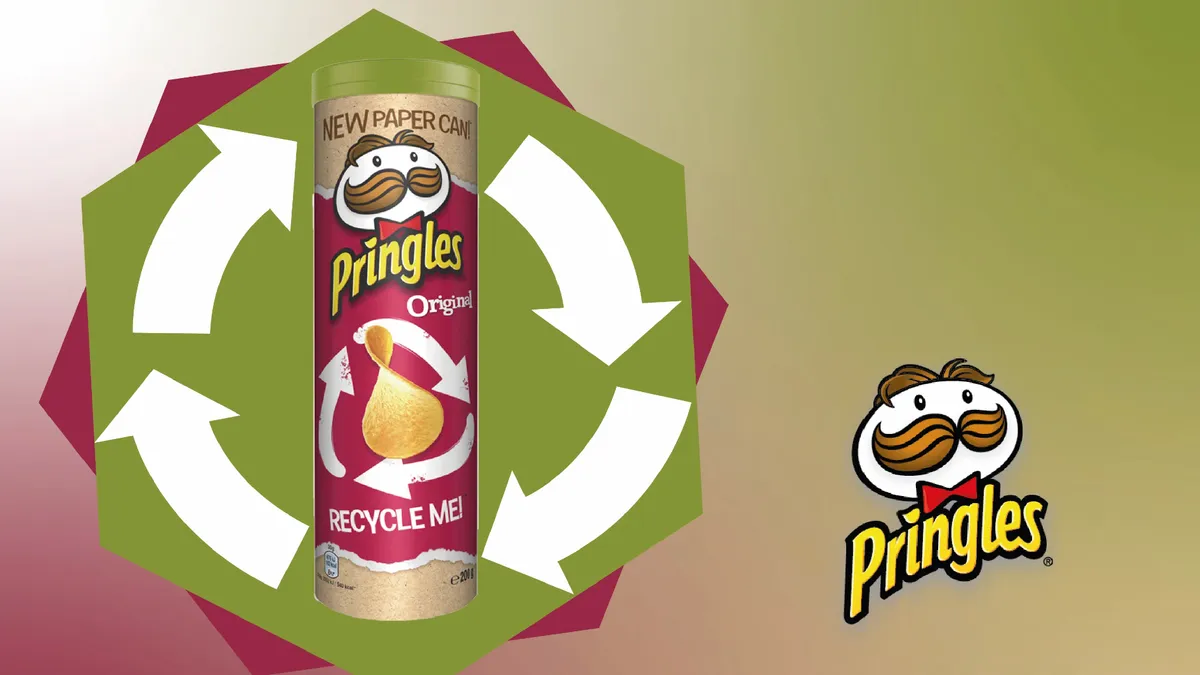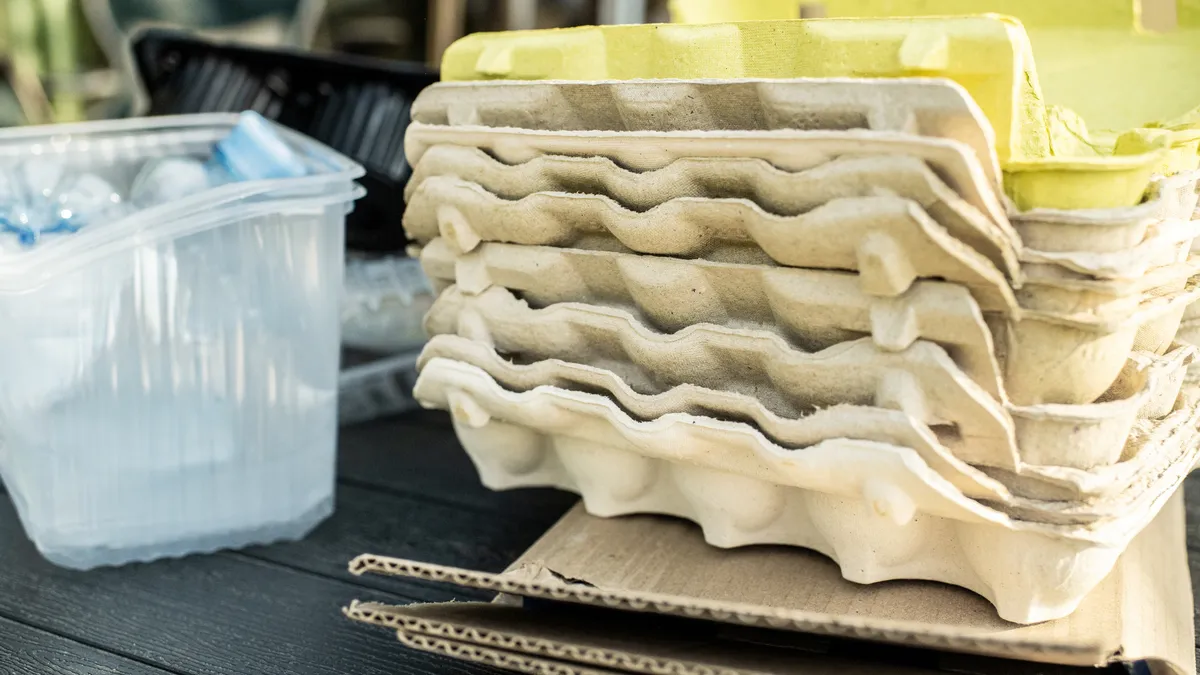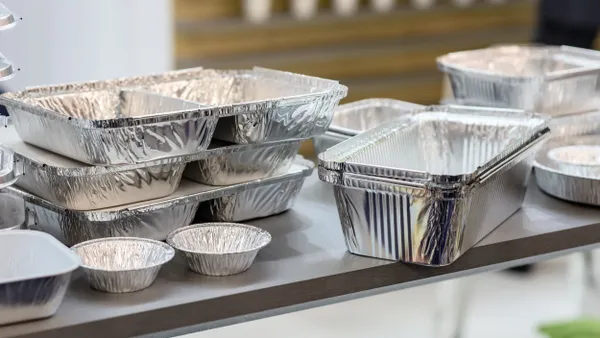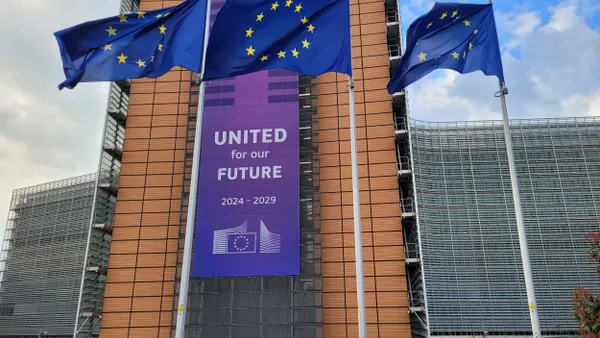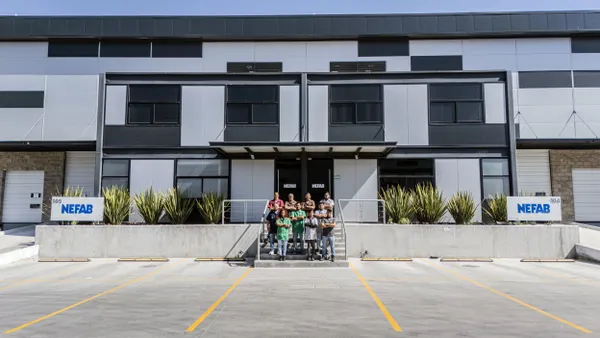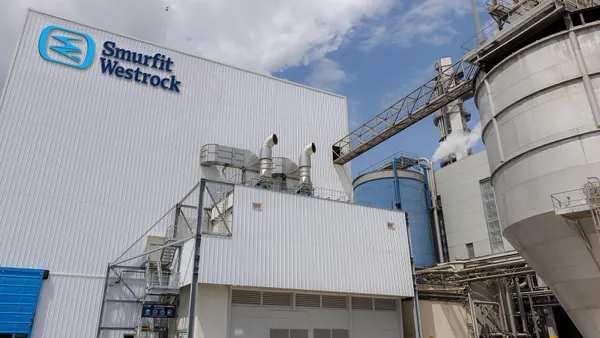Companies constantly innovate with technology and redesign their packaging. Here’s a look at seven recent examples of product redesigns, material switches and sustainable packaging solutions on Packaging Dive’s radar.
Pringles in paper
Kellogg’s revamped its Pringles chips tube to be made of 90% paper, which the company says is 100% recyclable, according to Packaging Europe. Two years ago, the company announced it would trial the paper tubes in U.K. grocery stores.
Traditionally, the tubes have been made from a combination of paperboard, metal and plastic. Multi-material products often are difficult to recycle or not accepted in conventional recycling programs. The metal base has been replaced with fiber, rendering the package recyclable once the plastic lid is removed, Kellogg’s said.
The company is investing in new machinery to make the paper tubes in Belgium, and the technology likely will expand into all European Pringles production lines in the future.
Newly single
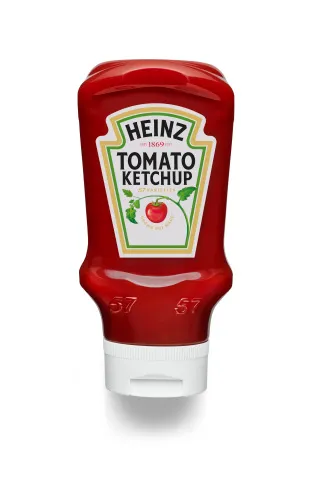
Heinz is ditching the multi-material ketchup cap for its squeezable 400ml bottles in favor that is made from a single, rigid material that the company says is recyclable. Now the entire ketchup bottle and cap can be recycled together, according to the company.
Kraft Heinz announced the new cap two years ago and began testing it in select areas. It spent eight years on R&D for this cap, during which time it developed 45 different designs and 3D printed the protoypes. The new product will begin appearing on store shelves in the U.K. in August. Kraft Heinz intends to add this cap to more of its sauces in the U.K., and “our ambition is to roll this out globally,” according to an emailed statement from a spokesperson.
Instant fiber
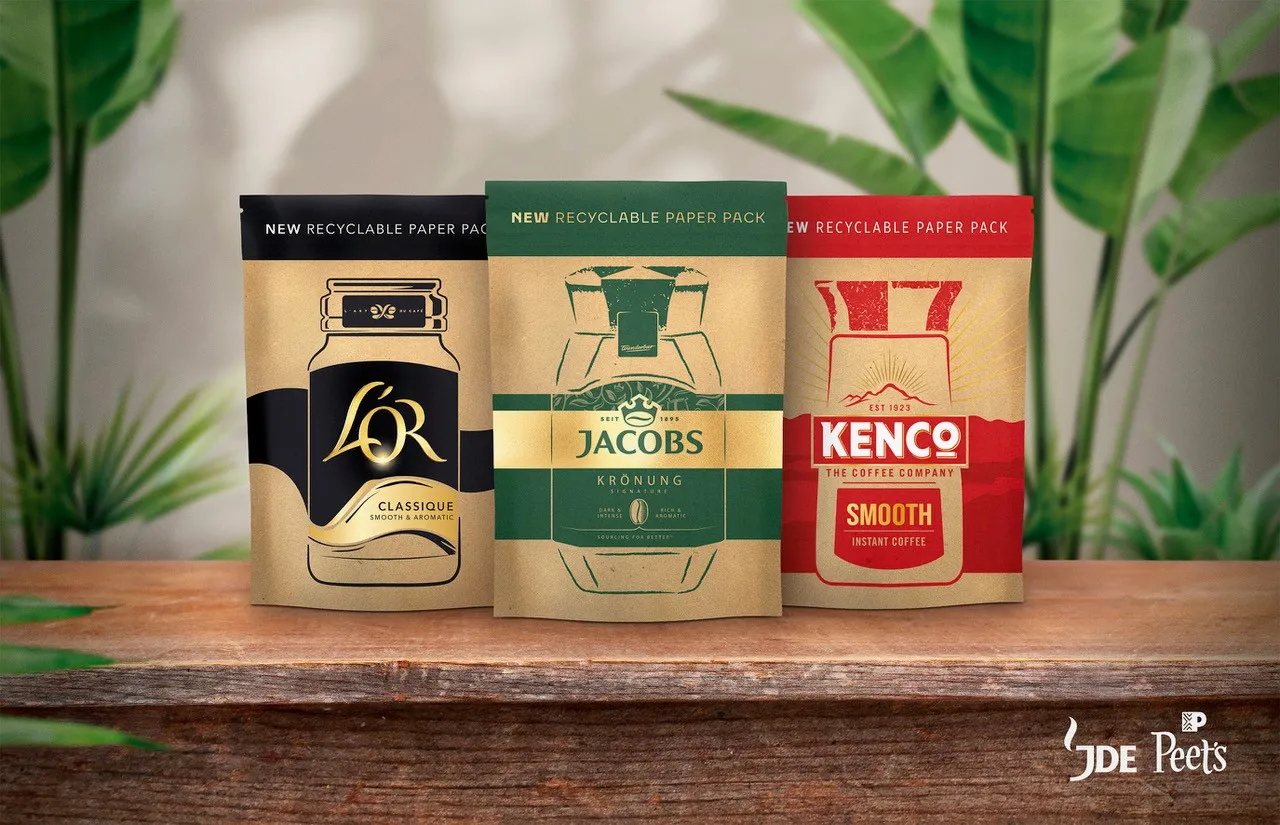
JDE Peet’s — parent company of numerous coffee brands including Peet’s, Gevalia and Stumptown — is launching a new fiber-based package for its instant coffee products. It calls the paper pack the first of its kind in the coffee market and says it will be recyclable. The coffee in paper packaging is slated to hit stores in select markets next year.
The meat of the matter
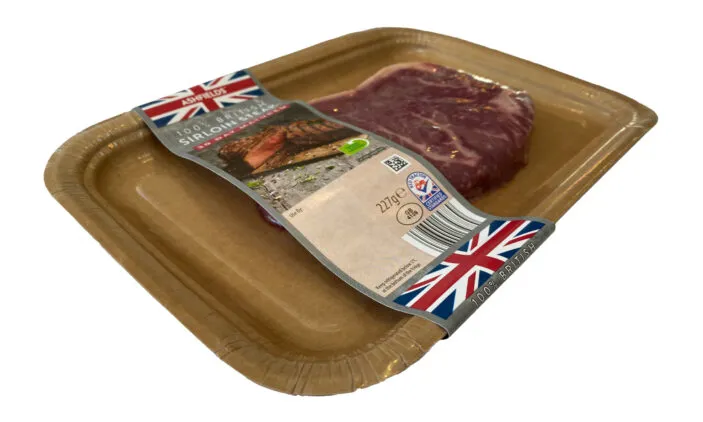
Graphic Packaging International partnered with ABP Food Group to create two new lines of fiber-based meat trays for Aldi’s U.K. stores. The vacuum skin pressed board trays use about 90% less plastic than the previous option and have a peelable film. GPI says the trays can be recycled after the consumer removes the film. The trays were designed to run on ABP’s existing packing lines without retooling the machinery or investing in new equipment.
The partners launched two different tray lines to differentiate between Aldi’s core and premium products. The core line uses a white option and the premium steaks will be on a brown kraft-look tray.
Laundry (re)cycles
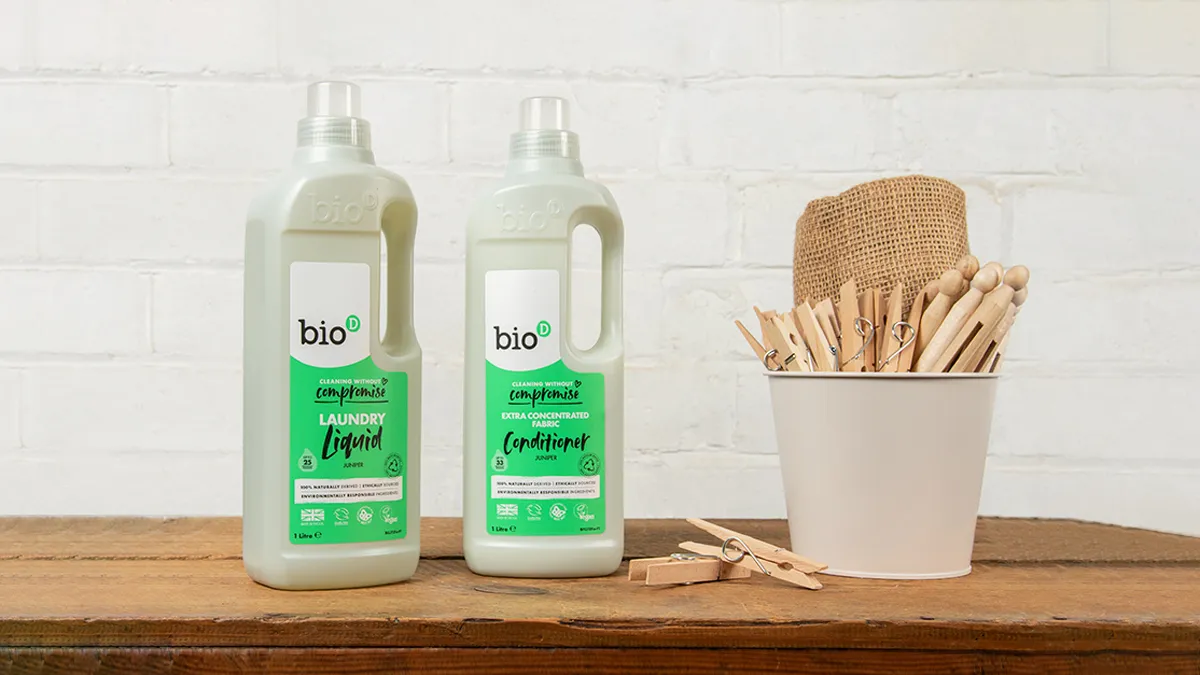
Berry Global developed reusable bottles from 100% postconsumer recycled HDPE for multiple sizes of The Bio-D Company’s cleaning products, including laundry detergent and dishwasher rinse aid. The bottles can be refilled at more than 300 refill stores and recycled at their end of life, according to Berry.
Berry says that creating the design involved balancing the bottle’s durability and longevity characteristics to support numerous refills as well as Bio-D’s desire for an environmentally responsible package for its 100% naturally-derived cleaning products.
“While we have been using recycled material in our containers for many years, the requirements for the Bio-D bottle set us additional challenges that required new material technology and processing requirements and an extensive new test regime,” Sally Halliwell, sales development manager for Berry Global Blow Moulding Specialities, said in a news release.
Minimizing medical containers
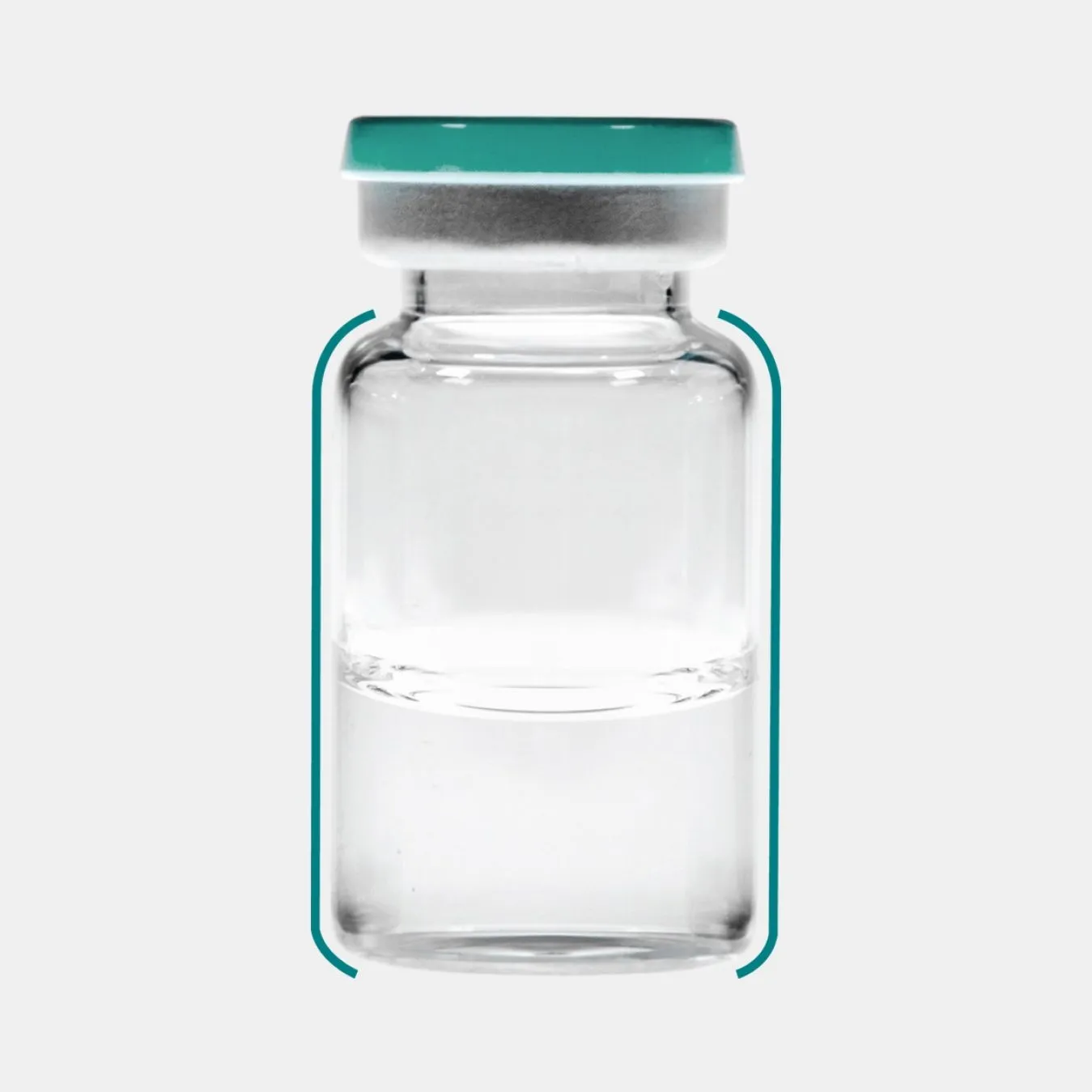
Corning launched Viridian Vials, a line of glass medical vials for injectable medications that it says will reduce waste and carbon emissions in the pharmaceuticals supply chain. The products are made with 20% less glass than conventional vials by reducing the wall thickness by 30%. The company says the innovation can boost filling-line efficiency by up to 50% and cut vial-manufacturing carbon dioxide-equivalent emissions by up to 30%. The patented external coating reduces damage so the vials have the same or better breakage rate compared to other vials, according to Corning.
Glass expansion
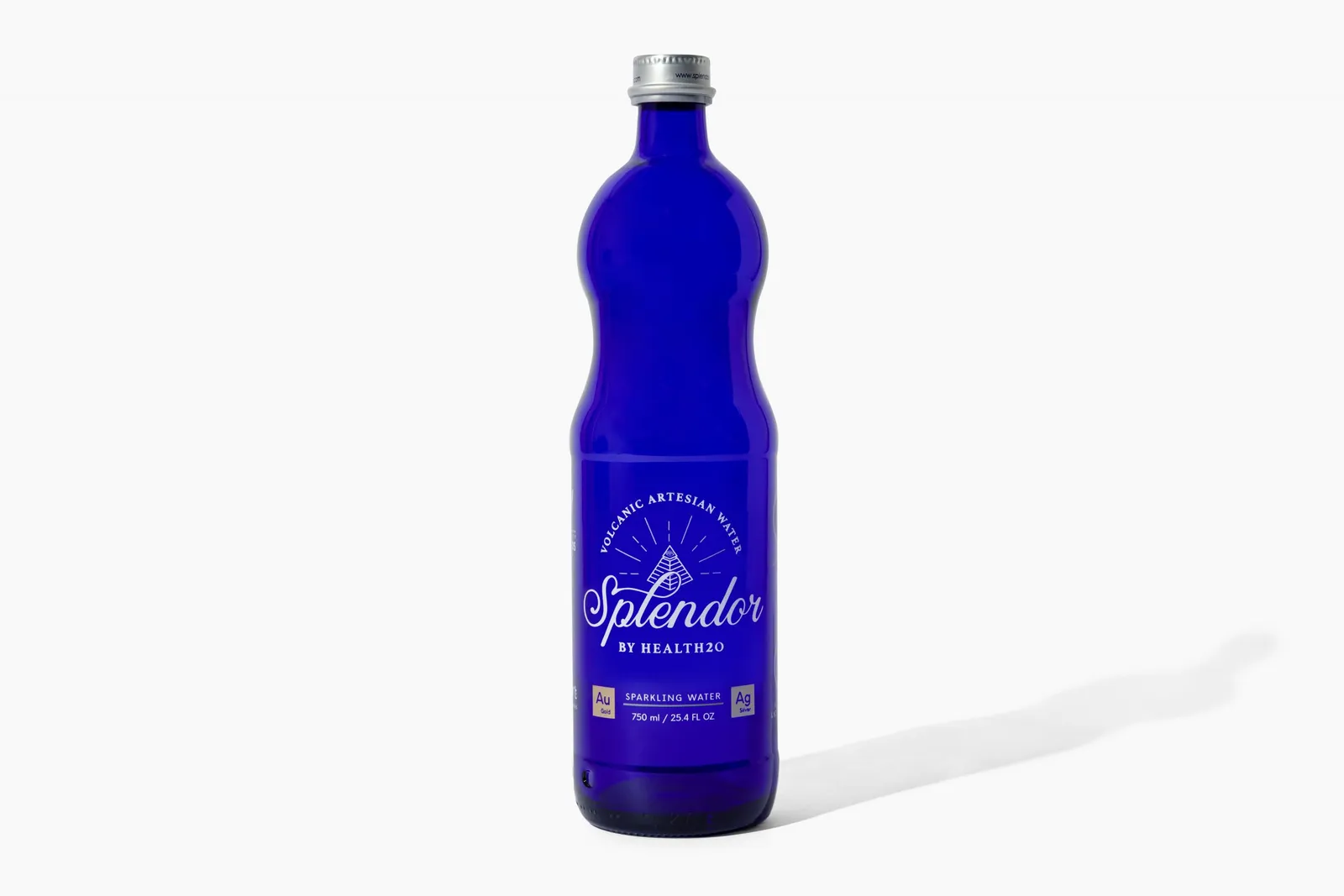
Splendor Water, which previously only offered plastic bottles, expanded its product line to include mineral water in glass bottles. Ardagh Glass Packaging developed the bottles, which maintain the indigo color of the original plastic versions. Splendor says this recyclable product highlights its focus on sustainability.



